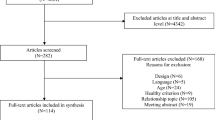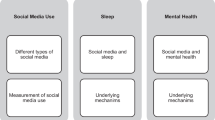Abstract
Sleep is one of the basic human needs with a vital role in normal development and growth. However, sleep loss is a prevalent problem among school children and adolescents, leading to multiple academic and health consequences. Children and adolescents in Hong Kong who are under greater academic pressure and stress are found to sleep lesser than their western counterparts. Several local studies consistently demonstrated that Hong Kong schoolers are sleep deprived during school days with extensive sleep compensation during weekends. To combat this prevalent situation, sleep education program aiming at promoting healthy sleep practices is needed. This paper will review the rationale, efficacy and experiences of our large-scale school-based sleep education program in Hong Kong. In summary, our group conducted a clustered randomized school-based educational program with multilevel and multimodal sleep education program including town hall seminar, small class teachings, slogan and painting competitions and development of a sleep education website. The findings of our study conducted in the secondary schools suggested that school-based sleep education program was effective in increasing sleep knowledge, improving behaviors and psychological health as well as healthy lifestyle practice in adolescents, but it did not improve the sleep-wake pattern of the adolescents.
Similar content being viewed by others
References
Broman JE, Lundh LG, Hetta J. Insufficient sleep in the general population. Neurophysiol Clin. 1996;26:30–9.
Kong AP, Wing YK, Choi KC, Li AM, Ko GT, Ma RC, Tong PC, Ho CS, Chan MH, Ng MH, et al. Associations of sleep duration with obesity and serum lipid profile in children and adolescents. Sleep Med. 2011;12:659–65.
Yang CK, Kim JK, Patel SR, Lee JH. Age-related changes in sleep/wake patterns among Korean teenagers. Pediatrics. 2005;115:250–6.
Wing YK, Li SX, Li AM, Zhang J, Kong AP. The effect of weekend and holiday sleep compensation on childhood overweight and obesity. Pediatrics. 2009;124:e994–1000.
Wing YK, Chan NY, Man Yu MW, Lam SP, Zhang J, Li SX, Kong AP, Li AM. A school-based sleep education program for adolescents: a cluster randomized trial. Pediatrics. 2015;135:e635–43.
Fallone G, Owens JA, Deane J. Sleepiness in children and adolescents: clinical implications. Sleep Med Rev. 2002;6:287–306.
Carskadon MA. Patterns of sleep and sleepiness in adolescents. Pediatrician. 1990;17:5–12.
Hirshkowitz M, Whiton K, Albert SM, Alessi C, Bruni O, DonCarlos L, et al. National Sleep Foundation’s sleep time duration recommendations: methodology and results summary. Sleep Health. 2015;1:40–3.
Chung KF, Cheung MM. Sleep-wake patterns and sleep disturbance among Hong Kong Chinese adolescents. Sleep. 2008;31:185–94.
Paavonen EJ, Raikkonen K, Lahti J, Komsi N, Heinonen K, Pesonen AK, Jarvenpaa AL, Strandberg T, Kajantie E, Porkka-Heiskanen T. Short sleep duration and behavioral symptoms of attention-deficit/hyperactivity disorder in healthy 7- to 8-year-old children. Pediatrics. 2009;123:e857–64.
Gibson ES, Powles AC, Thabane L, O’Brien S, Molnar DS, Trajanovic N, Ogilvie R, Shapiro C, Yan M, Chilcott-Tanser L. “Sleepiness” is serious in adolescence: two surveys of 3235 Canadian students. BMC Public Health. 2006;6:116.
Dewald JF, Meijer AM, Oort FJ, Kerkhof GA, Bogels SM. The influence of sleep quality, sleep duration and sleepiness on school performance in children and adolescents: a meta-analytic review. Sleep Med Rev. 2010;14:179–89.
Curcio G, Ferrara M, De Gennaro L. Sleep loss, learning capacity and academic performance. Sleep Med Rev. 2006;10:323–37.
Mak KK, Lee SL, Ho SY, Lo WS, Lam TH. Sleep and academic performance in Hong Kong adolescents. J Sch Health. 2012;82:522–7.
O’Brien EM, Mindell JA. Sleep and risk-taking behavior in adolescents. Behav Sleep Med. 2005;3:113–33.
Owens J. Adolescent Sleep Working G, Committee on A. Insufficient sleep in adolescents and young adults: an update on causes and consequences. Pediatrics. 2014;134:e921–32.
Moore M, Meltzer LJ. The sleepy adolescent: causes and consequences of sleepiness in teens. Paediatr Respir Rev. 2008;9:114–21.
Hidalgo MP, Caumo W. Sleep disturbances associated with minor psychiatric disorders in medical students. Neurol Sci. 2002;23:35–9.
Reid GJ, Hong RY, Wade TJ. The relation between common sleep problems and emotional and behavioral problems among 2- and 3-year-olds in the context of known risk factors for psychopathology. J Sleep Res. 2009;18:49–59.
Spiegel K, Knutson K, Leproult R, Tasali E, Van Cauter E. Sleep loss: a novel risk factor for insulin resistance and type 2 diabetes. J Appl Physiol. 1985;2005(99):2008–19.
Au CT, Ho CK, Wing YK, Lam HS, Li AM. Acute and chronic effects of sleep duration on blood pressure. Pediatrics. 2014;133:e64–72.
Carskadon MA, Vieira C, Acebo C. Association between puberty and delayed phase preference. Sleep. 1993;16:258–62.
Roenneberg T, Kuehnle T, Pramstaller PP, Ricken J, Havel M, Guth A, Merrow M. A marker for the end of adolescence. Curr Biol. 2004;14:R1038–9.
Wahlstrom K. Changing times: findings from the first longitudinal study of later high school start time. NASSP Bull. 2002;86:3–21.
Thomson P. Schooling the rustbelt kids: making the difference in changing times. Stoke-on-Trent, Sterling: Trentham Books; 2002.
Owens JA, Belon K, Moss P. Impact of delaying school start time on adolescent sleep, mood, and behavior. Arch Pediatr Adolesc Med. 2010;164:608–14.
Minges KE, Redeker NS. Delayed school start times and adolescent sleep: a systematic review of the experimental evidence. Sleep Med Rev. 2016;28:82–91. doi:10.1016/j.smrv.2015.06.002.
Lufi D, Tzischinsky O, Hadar S. Delaying school starting time by one hour: some effects on attention levels in adolescents. J Clin Sleep Med. 2011;7:137–43.
Kirby M, Maggi S, D’Angiulli A. School start times and the sleep-wake cycle of adolescents: a review and critical evaluation of available evidence. Educ Res. 2011;40:56–61.
Chan NY, Zhang J, Yu MWM, Lam SP, Li SX, Kong AP, Li AM, Wing YK. The impact of a modest delay in school start time in Hong Kong School adolescents. 2015 (submitted).
Rossi C, Vo O, Marco C, Wolfson A. Middle school sleep-smart program: a pilot evaluation. Sleep. 2002;25:A279.
Moseley L, Gradisar M. Evaluation of a school-based intervention for adolescent sleep problems. Sleep. 2009;32:334–41.
Zhang J, Li AM, Fok TF, Wing YK. Roles of parental sleep/wake patterns, socioeconomic status, and daytime activities in the sleep/wake patterns of children. J Pediatr. 2010;156(606–12):e5.
Kim SJ, Lee YJ, Cho SJ, Cho IH, Lim W, Lim W. Relationship between weekend catch-up sleep and poor performance on attention tasks in Korean adolescents. Arch Pediat Adol Med. 2011;165:806–12.
Olds T, Blunden S, Petkov J, Forchino F. The relationships between sex, age, geography and time in bed in adolescents: a meta-analysis of data from 23 countries. Sleep Med Rev. 2010;14:371–8.
Owens JA, Jones C, Nash R. Caregivers’ knowledge, behavior, and attitudes regarding healthy sleep in young children. J Clin Sleep Med. 2011;7:345–50.
Acknowledgments
The authors thank all the principals and teachers of the participating schools for approving and accommodating the implementation of the program. We also thank all the parents, teachers, and students who participated in the study.
Funding source: This project was supported by Public Policy Research of University Grants Committee (Reference Number: CUHK4012-PPR-11), Hong Kong SAR, China. The funding body has no role in conception, design, conduction, interpretation and analysis of the study or in the approval of the publication.
Author information
Authors and Affiliations
Corresponding author
Rights and permissions
About this article
Cite this article
Chan, N.Y., Lam, S.P., Zhang, J. et al. Sleep education in Hong Kong. Sleep Biol. Rhythms 14 (Suppl 1), 21–25 (2016). https://doi.org/10.1007/s41105-015-0008-8
Accepted:
Published:
Issue Date:
DOI: https://doi.org/10.1007/s41105-015-0008-8




